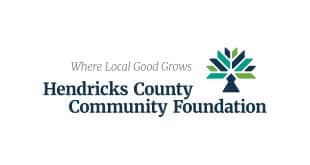INDIANAPOLIS – The Indianapolis Metropolitan Police Department (IMPD) joins the Indianapolis office of the Federal Bureau of Investigation (FBI) in continuing to warn residents of scams related to the COVID-19 pandemic.
Some scams claim to help individuals receive stimulus checks or unemployment payments. Residents are reminded that providing an account number or ‘signing up’ is not necessary to receive a stimulus payment. Residents can visit the IRS Economic Impact Payments and Indiana Department of Workforce Development unemployment websites for more information.
Other scams claim to offer cures or treatments for the virus. While the desire to quickly provide your family with protection from COVID-19 is understandable, it’s important to remember that there are currently no vaccines, pills, lotions, lozenges, or any other over-the-counter products available to treat or cure COVID-19. These ‘cures’ can be extremely dangerous to your health – even fatal. Residents are reminded to never accept a medical treatment or virus test from anyone other than your doctor, pharmacist, or local health department.
Some schemes focus on COVID-19 testing. Beware of individuals who contact you in person, by phone, or by email to tell you the government or government officials have mandated that you take a COVID-19 test. This is different from contact tracing, where a health official may contact you to inform you that you were exposed to COVID-19 and should quarantine for 14 days. Scammers will likely ask you for health insurance information, including your Medicare or Medicaid number, or other personal information. Prior healthcare fraud investigations have shown that once scammers obtain an individual’s personal information, they will use it to bill insurance providers or federal healthcare programs for tests and procedures that were never administered and pocket the proceeds.
How residents can protect themselves:
- If someone offers you a vaccine, cure, or treatment, do not provide any personal information, including your financial information, Medicare or Medicaid number, or private health insurance information. Residents are reminded that when an approved treatment or cure becomes available, they will not first hear about it through an email, phone call, online advertisement, or unsolicited in-person sales pitch from someone you do not know.
- Beware of scammers claiming to be medical professionals who have treated your friend or relative for COVID-19 and are demanding payment.
- If you do receive treatment for COVID-19, be sure to check the medical bills and Explanation of Benefits you receive from your provider, government health program, or insurance company after your treatment to ensure you have not been billed for medical services you did not receive and that the dates of service are accurate. If you spot an error in your bill, call your medical provider and your insurance company.
- Be vigilant online. Fraudsters use e-mail and social-networking sites, including job search engines, to facilitate fraud.
- Be suspicious of unsolicited contacts or offers, especially those requiring or requesting your medical insurance information.
- If you receive a robocall, hang up. Don’t press any numbers or answer any questions.
- Beware of text messages or emails offering cures, information, or financial assistance and do not click links from unfamiliar senders.
- Carefully research requests for donations. Do not send cash, gift cards, or wire money.
Online and email scams can be reported to the FBI Internet Crime Complaint Center at ic3.gov.
Residents and affected workers impacted by COVID-19 restrictions should visit the city’s resource guide, which can be viewed at indy.gov/covid. Spanish speaking residents can view the resource guide here. Individuals who are unable to navigate the city’s website can call 317-327-4MAC between the hours of 8:00 a.m. and 5:00 p.m. to talk to a customer service representative. Those in need of non-emergency police services should call 317-327-3811. Residents not currently experiencing an emergency who have questions about COVID-19 are asked to call 1-877-826-0011.






